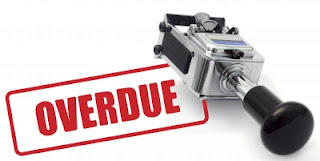The recent change in focus and attitude on the part of the Federal Trade Commission (FTC) and the Consumer Financial Protection Bureau (CFPB) has brought an aggressive new strategy from the Federal Government against the tactics and business practices of collection agencies and related industries such as debt relief companies. While the new rules and policies were welcomed by consumer advocates who have long complained that debt collection has been existing in a quasi-legal and certainly immoral space for some time, the new policies at first seemed to focus only on the larger firms that had revenues of $10,000,000 and up. Many consumer advocates were unhappy with this baseline as it meant the vast majority of agencies would be excluded from review, as only 175 out of approximately 4,500 collection firms meet the revenue baseline.
However, in the months since the new rules went into effect, it’s become clear that this aggressive new policy will affect the smaller collection agencies that don’t meet the revenue baseline just as heavily. This has been demonstrated in two ways, direct and indirect.
Directly, the FTC and CFPB have brought several complaints and suits against smaller agencies in Florida and California in recent months, seeking judgments for violations including charging fees for debt relief services and improperly withholding information from consumers. Many of the firms targeted do not meet the revenue baseline.
Indirectly, the tightened rules and renewed focus have impacted the smaller collection shops and collection law firms by a trickle down affect. Hence, a large collection agency that is subject to the new rules will have to insure their subcontractors all meet the new stringent guidelines. Therefore, smaller collection firms are now impacted—therefore their bottom lines are being negatively affected as well. Poorly documented or contested debts that were previously sold to smaller shops as well as larger firms are now being sold more or less solely to the largest debt firms in the country. The result is that smaller collection agencies do not have access to a great deal of the existing collectible debt. As a result, even without direct action from the Federal Government, the smallest debt collection shops are suffering a sizable reduction in business.











